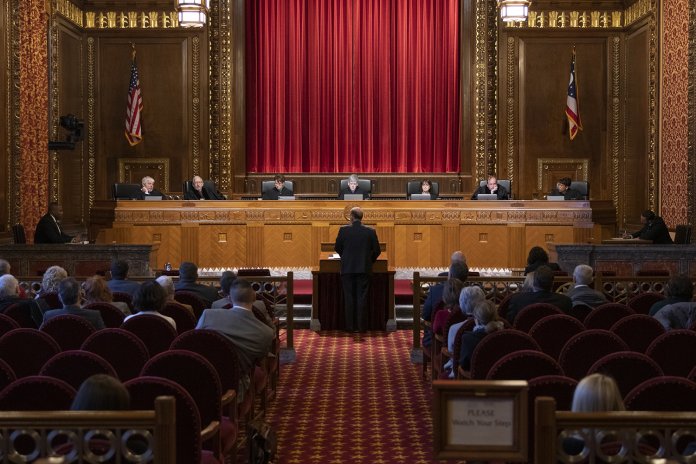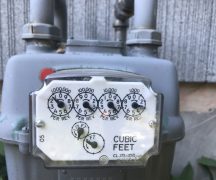Ohio Capital Journal
The Ohio Supreme Court on Tuesday overruled a decision from Republicans on the Ohio Ballot Board, ordering them to certify that a proposed voter-access referendum only spans a single issue.
The Ballot Board — chaired by Secretary of State Frank LaRose — sliced the referendum into four parts in March. This quadrupled the number of signatures organizers would need to gather from about 443,000 to 1.8 million in order to get the referendum on the November ballot.
As proposed, the amendment makes several changes designed to make it easier to vote. Specifically, it would:
- Remove the requirement that Ohioans be registered at least 30 days before they vote
- Allow Ohioans to register to vote on Election Day
- Provide for automatic voter registration through the BMV (unless one opts out)
- Allow in-person voting on weekdays in the 28 days before Election Day and on the last two weekends before Election Day
- Guarantee full and equal access for people with disabilities to register and vote
- Grant military personnel an absentee ballot 46 days before an election
- Require a “representative sample of statewide elections” to be audited to ensure accuracy and integrity
Republicans, who control three of five seats on the board, argued the provisions fall into four separate subjects: election administration, voter registration, access to voting for disabled people, and post-election audits. Their vote divided the referendum as such.
The court deemed this interpretation incorrect and ordered the board to meet within seven days and certify the amendment.
The organizers, all affiliated with the ACLU of Ohio, claimed a partial victory. On the one hand, the court agreed with their position that the referendum only encompassed one issue. On the other, the court denied an extension of the July 1 deadline to gather 443,000 required signatures.
In a statement, Toni Webb, campaign manager with organizing group Ohioans for Secure and Fair Elections, praised the court decision.
“The ballot board’s unlawful decision to choose politics over people underscores why our proposal must go directly before voters,” she said.
As for signatures, the ACLU is seeking to intervene in a lawsuit filed by organizers of another ballot petition (seeking to raise the minimum wage). The ACLU would argue for the right to gather signatures electronically, not in person, given the COVID-19 pandemic and ongoing shelter-in-place order.
A LaRose spokeswoman said they are disappointed by the decision but will respect it and take steps to convene the Ballot Board.
***
Also from Ohio Capital Journal:
Ohio Supreme Court to review ECOT appeal
The Ohio Supreme Court agreed Tuesday to take up the case of a former online charter school that is fighting the Ohio State Board of Education over funding standards.
The Electronic Classroom of Tomorrow (ECOT) filed an appeal in February of this year, arguing for the state high court to hear the case by saying the appeal involved a substantial constitutional question. The now-defunct for-profit charter school argued that the appellate courts did not have the right to reconsider final court decisions. READ MORE





